‘Bob Marley: One Love’ is a Vibrant Portrait of Global Music’s Most Influential Superstar

Bob Marley, in front of his house, July 9, 1979, Kingston, Jamaica. Photo: Charlie Steiner - Hwy 67 Revisited/Getty Images
As the lights went down in the theatre, it was hard not to feel some trepidation. There were so many ways that a Hollywood movie about Bob Marley could go wrong – from the high-wire act of a dude in fake dreadlocks lip-syncing his songs to the challenge of portraying his Rasta faith, a Zen brew of Judaic scripture and pan-African pride, and a culture brutalized by street wars of Jamaican politics. And everything hinged on casting an actor who can reincarnate a sainted icon as a credible human being. That mission fell to Kingsley Ben-Adir, an alarmingly buff and handsome Brit who doesn’t look much like Marley, and who stepped into the role straight from playing Basketball Ken, one of the dimmer hunks in Barbie. And finally, you have the too-many-cooks question of who gets to tell the story. With four screenwriters and six producers, who included three members of Marley’s family, I couldn’t help but worry that Bob Marley: One Love (in theatres Feb. 14) could be a hot mess of hagiography.
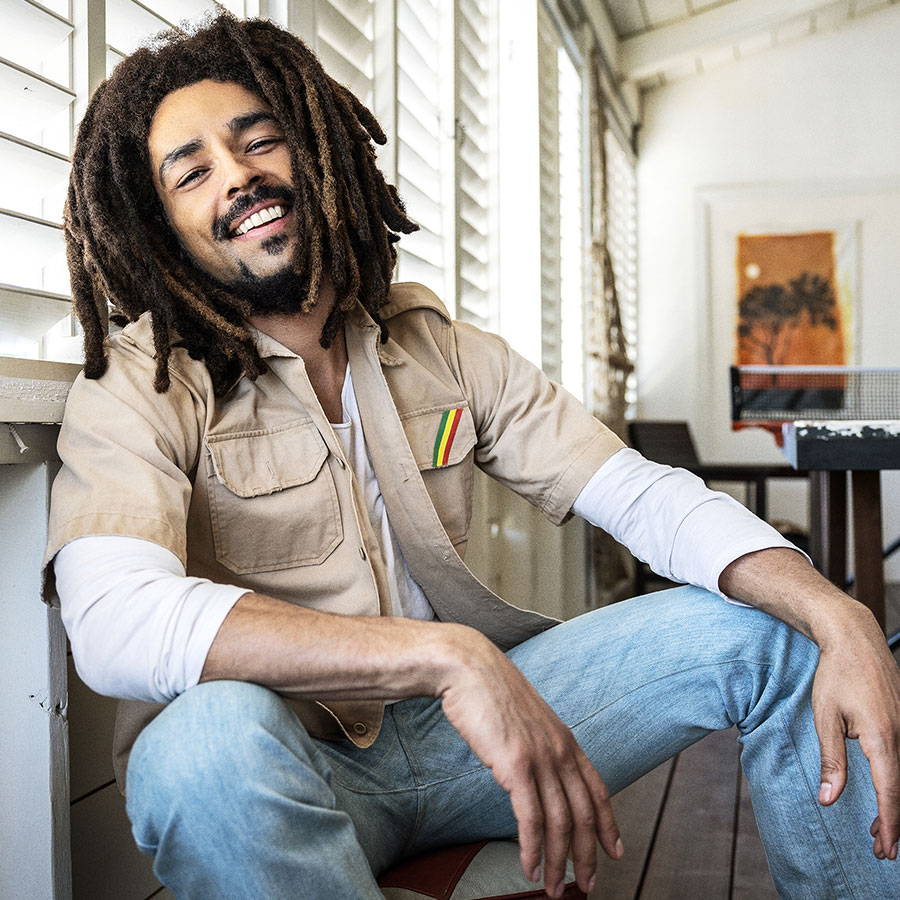
Surprise, surprise. Two hours later, I floated out of the theatre on a tide of emotion, welling with tears of joy and a warm longing that goes far deeper than nostalgia. As it turned out, the eternal optimism of Marley’s Three Little Birds had prevailed: Don’t worry about a thing /‘Cause every little thing gonna be alright.
Some disclosure. I’m over-invested in the subject. Marley’s music has played a large role in my life. As a novice musician who was seduced by African drums in the late’70s, I found a second childhood in the primal rhythms of reggae and left journalism to become a percussionist in a rock-reggae outfit called Limbo Springs. We shared a studio with a band led by Jamaican singer Ernie Smith. I played a few gigs with them, including one that offered the thrill of lifetime: a Toronto concert backing up the I-Threes, the female vocal trio of Bob Marley and the Wailers. The moment when Rita Marley (Bob’s widow) danced away from her microphone to trade a few licks on my conga drums has never left me. (Three Little Birds also stuck: it was the first song I sang to my son the day he was born and now play for my four-year-old granddaughter, who calls it the “Don’t Worry” song.)
So the film critic in me feels disqualified from writing a measured review of One Love. But given a shot, I would herald it as is a miraculously good movie, and a historic milestone for both music and cinema. American director Reinaldo Marcus Green (King Richard) does more than get it right. In crafting a faithful, vibrant portrait of global music’s most influential superstar, he has minted a rare Hollywood phenomena: a biopic that doesn’t try to deify a larger-than-life legend, but brings him back to earth, grounding him in his music, his mission and his motherland. One Love is the portrait of the artist on a selfless mission, who had a knack for deflecting the spotlight as he brought his poetry of peace and justice to a world that doesn’t need another hero.
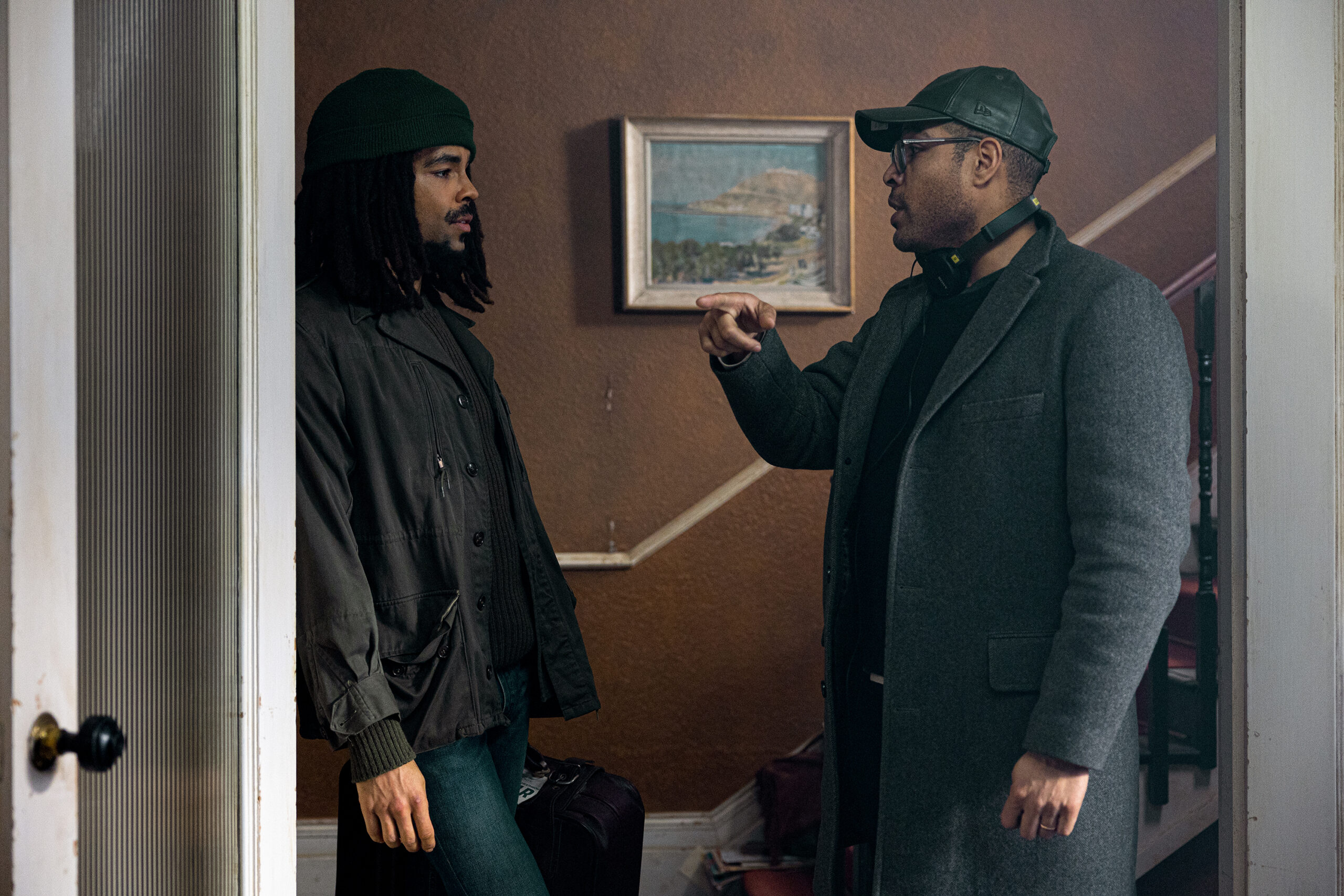
It’s not really a biopic. Rather than compressing a life into a couple of hours, it magnifies a brief and pivotal phase in Marley’s career – from the night in 1976 when gunmen shot up his Kingston home (injuring him, his wife Rita, and two of his staff) to 1978’s One Love Peace Concert, where at centre stage he physically pulled the leaders of Jamaica’s two warring political parties together. Bracketed by those two events, the story puts the focus on Marley’s music, and the creation of his landmark album, Exodus.
It’s also a misnomer to call One Love a Hollywood movie. Sure, it hails from Paramount Pictures and was produced by Plan B, Brad Pitt’s smartly independent production company. But it was filmed on location in Jamaica (and London), in the places where the events it depicts took place, under the eye of Marley’s friends, family, musical cohorts – and a local film crew of 250 Jamaicans – who worked to keep it real. While the film’s lavish production values lend it a Hollywood lustre, it looks, sounds and smells like Jamaica. No matter who paid for it, One Love is a Jamaican movie executed on an unprecedented scale.

It reminds us that cinema holds a cherished place on this island, with a pedigree that ranges from Sean Connery making his James Bond debut on a beach in Dr. No (1962) to Jimmy Cliff catapulting reggae into the mainstream with The Harder They Come (1972). And to bring the movie/music lineage full circle, that Jamaican beach, on the GoldenEye estate where Ian Fleming invented 007, was bought by Marley and later sold to his producer, Island Records founder Chris Blackwell.
Now, Jamaica sends a new star into orbit with Ben-Adir’s impeccable performance in One Love. The actor clearly did his homework. As he captures Bob’s quicksilver body language and relaxed charisma, his lack of physical resemblance to the character quickly ceases to be a concern. He also nails the sly cadence of Bob’s Rasta patois, with its edge of trickster wit and blithe confidence. Thankfully, the filmmakers refrained from subtitling some bits of Jamaican dialogue that many viewers will find hard to catch – a nervy choice for a big movie. But you can get the gist; you have to lean into it, as it you would if you were in the room. And the movie consistently puts us in the room, most intimately in the recording studio where Marley pulls the first threads of songs like Natural Mystic and Exodus out of the ether.
The story also highlights key moments of Marley’s life, in framed flashbacks to his early career and his budding romance with Rita. As their relationship weathers into a weary marriage, its simmering tensions serve as the film’s emotional throughline. There are just glancing allusions to Bob’s other women and the children he fathered out of wedlock. But Rita finally gets her due. Played by Lashana Lynch (who took Bond down a peg in No Time to Die), she unleashes the film’s most potent scene of high drama, confronting Bob in the back alley of a Paris nightclub.
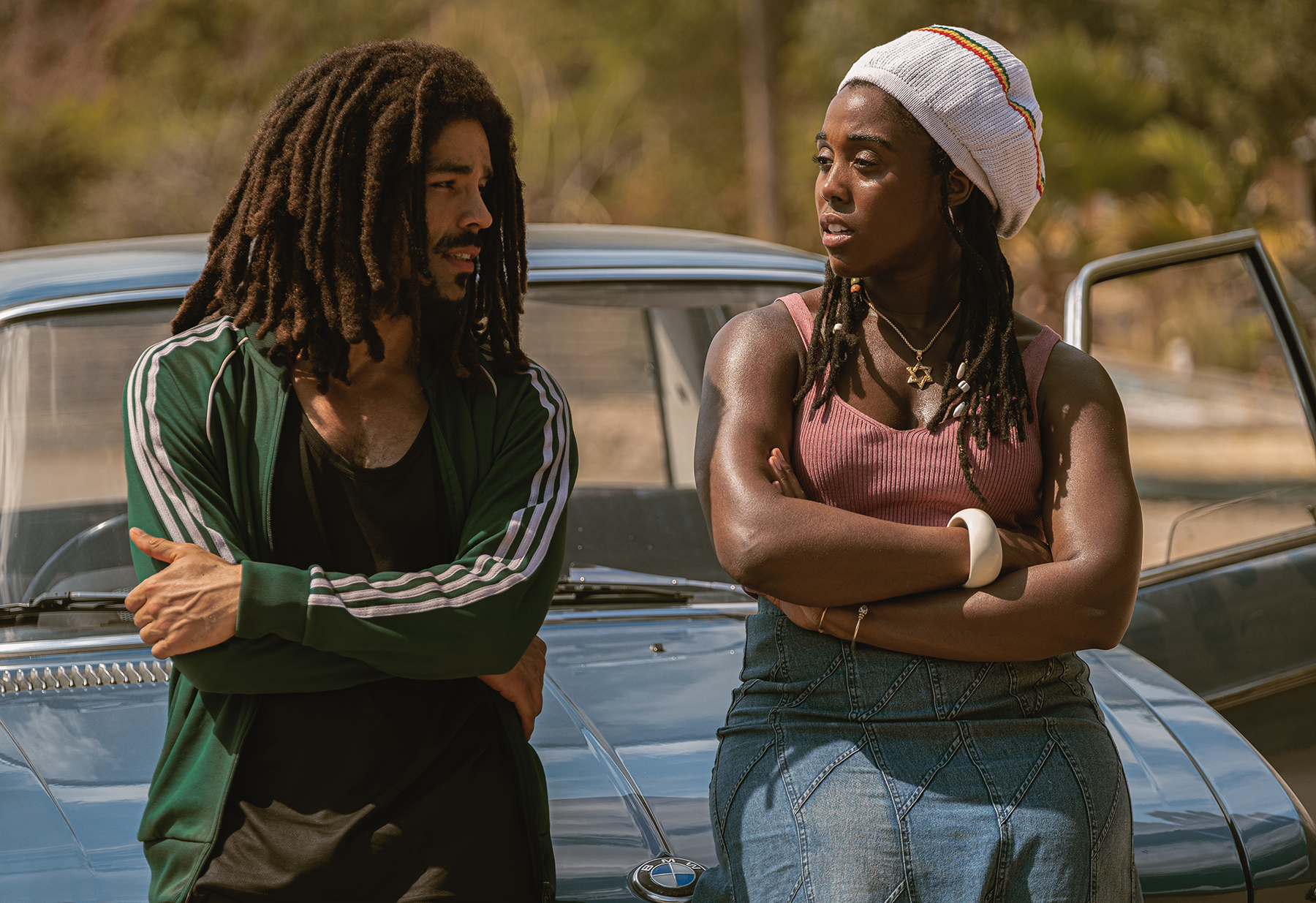
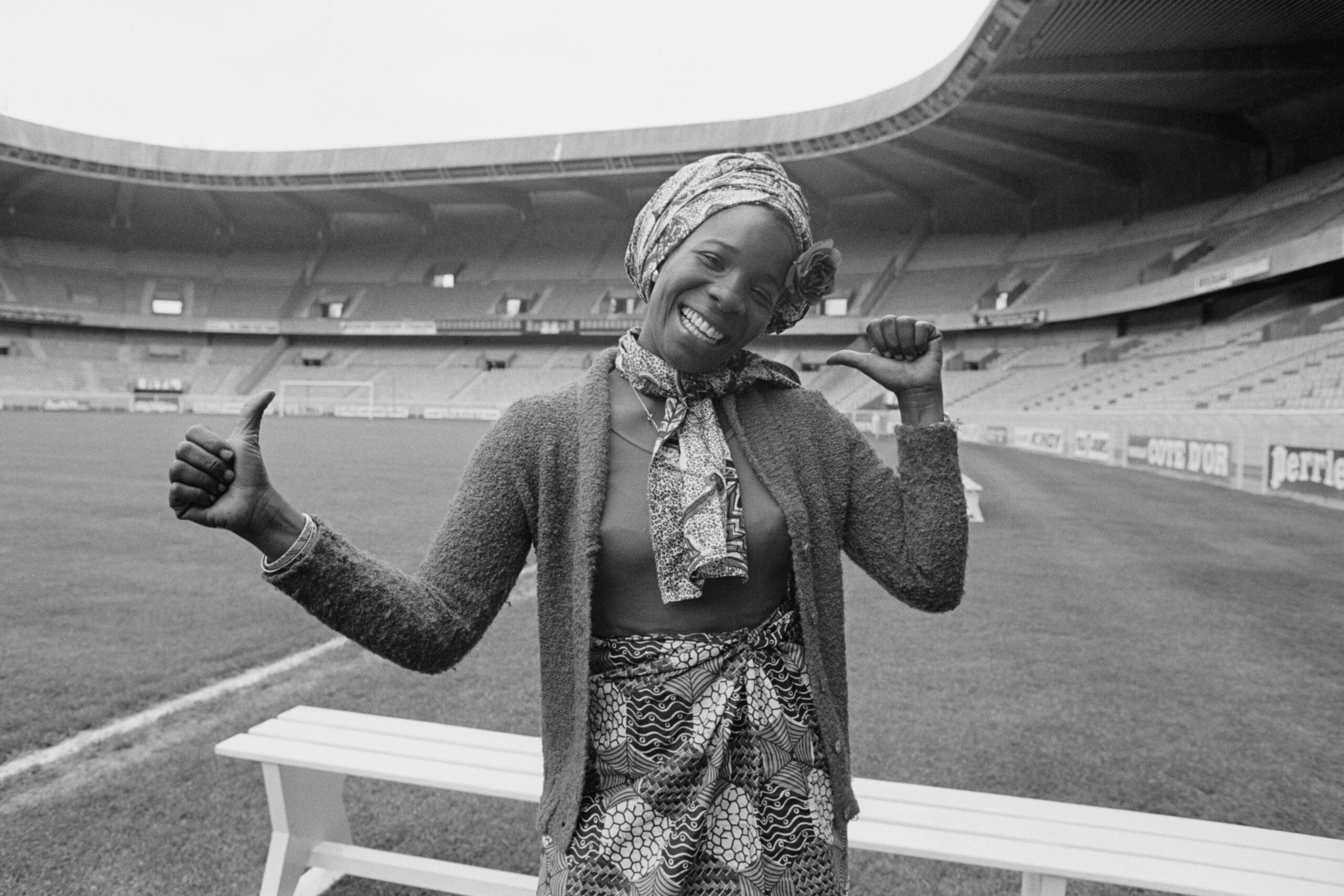
Yet unlike so many films about male genius artists – such as Maestro, where Leonard Bernstein’s music plays second fiddle to his tortured marriage – One Love doesn’t allow the love story to submerge the art. There’s not the usual amped-up narrative arc of rise, fall and redemption. The script is gracefully underwritten –remarkable considering how many screenwriters were involved. And Ben-Adir shades his character’s personal traumas with nuanced depths of vulnerability. We see early signs of the cancer that surfaces from an untreated soccer injury and will eventually kill him at the age of 36. But it comes as a blow of bad luck, not the price of a tragic hero’s hubris. The only arc of redemption in One Love is an organic one – in the quiet strains of “Redemption Song” that sift through the film like campfire smoke until we finally hear lyrics that could give Oppenheimer a lesson in quantum physics:
Emancipate yourselves from mental slavery;
None but ourselves can free our minds.
Have no fear for atomic energy,
‘Cause none of them can stop the time.
In the end, One Love plays like a concert movie, and demands to be seen with state-of-the-art theatrical sound. The story’s most uplifting moments are driven by classic songs from Exodus, needle-dropped into strategic points of the narrative. Ben-Adir deftly lip-synchs Marley’s stage performances to their original recordings, which are judiciously clarified and enriched. He also credibly sings his own vocals in some acoustic interludes.
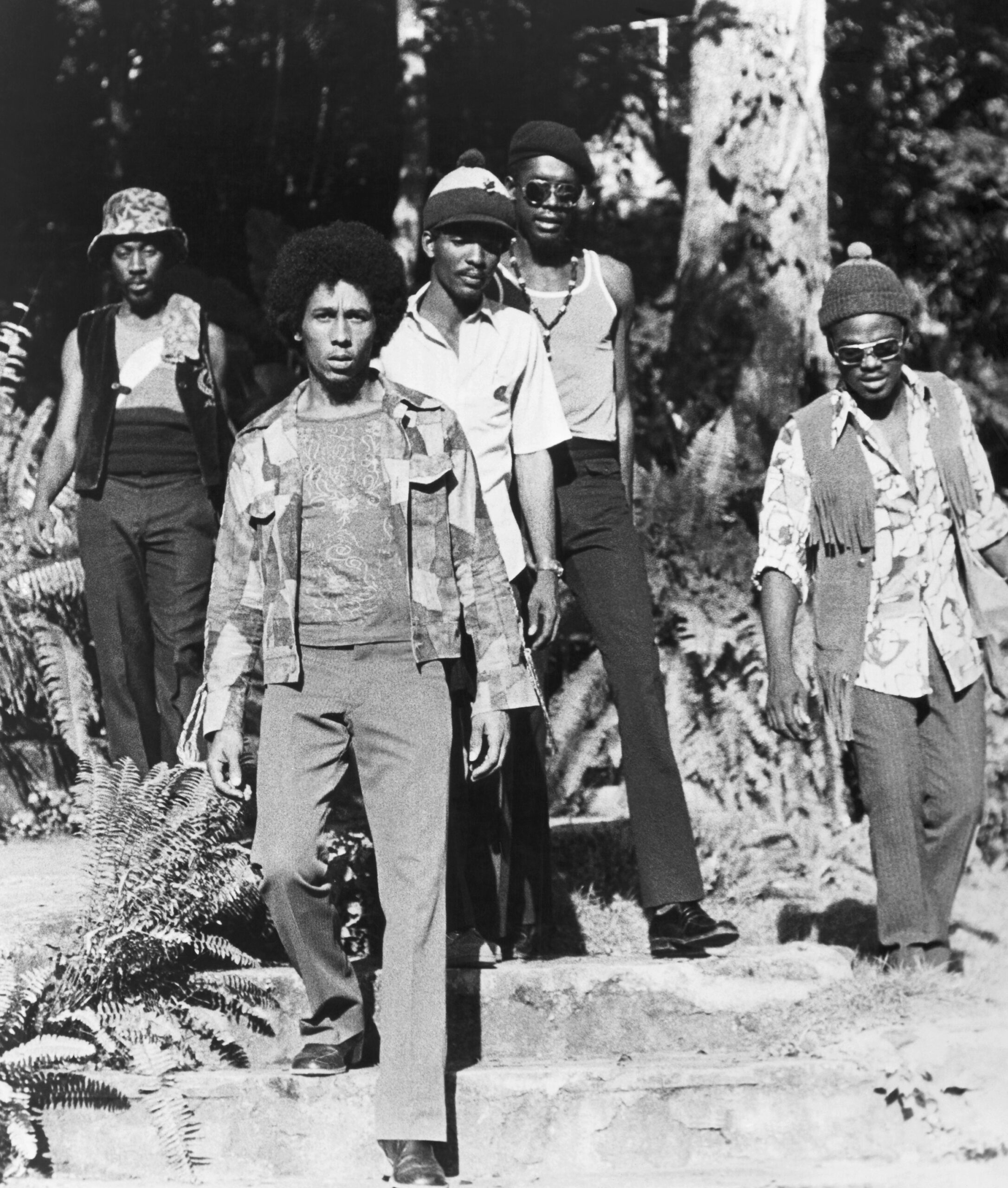
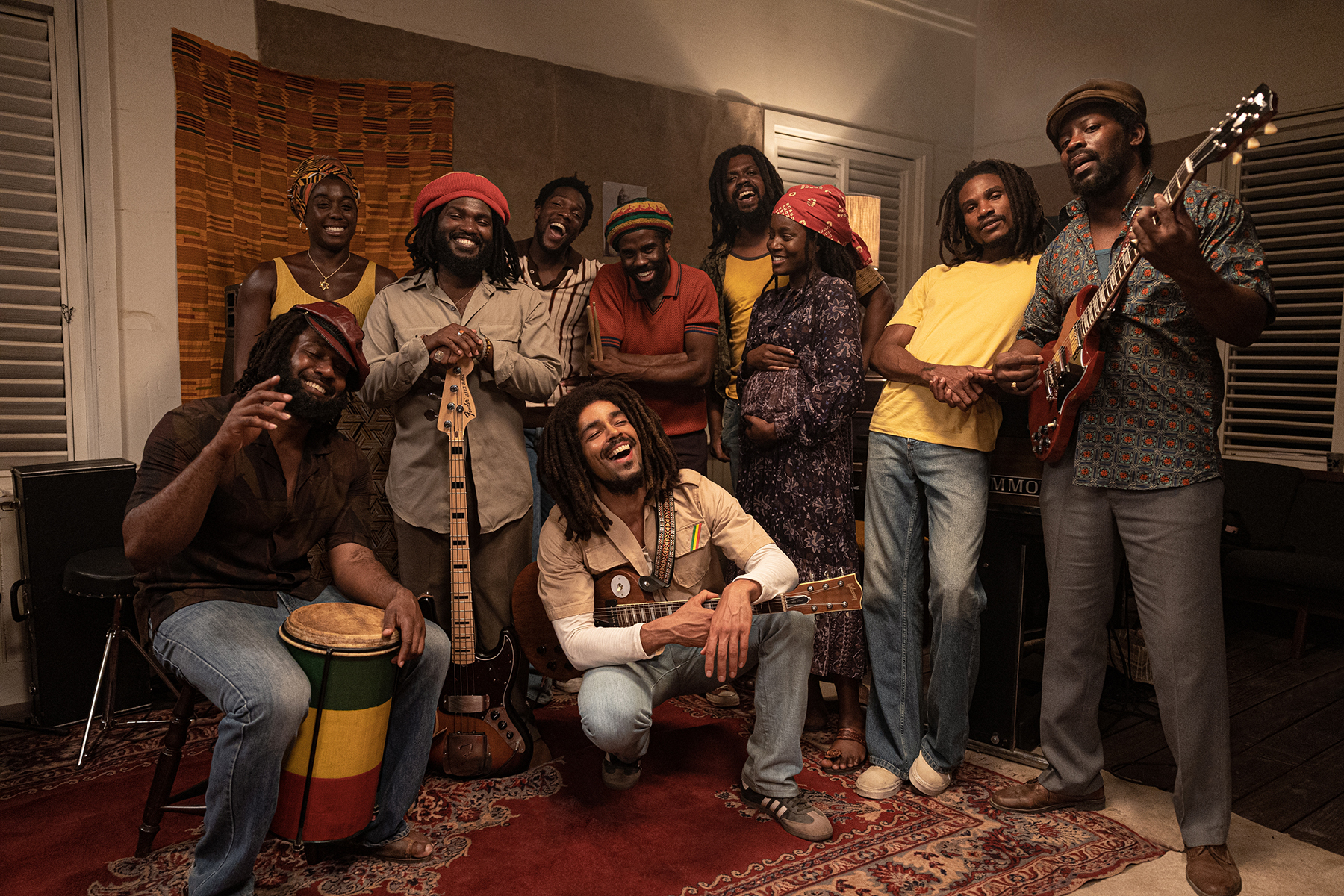
The result is not a replica of the singer or his songs, but a full-body musical baptism that seems to flow directly from the source. One Love is a vessel that takes us back to an enchanted time, while bringing Marley and his music vividly into the present moment, as alive as ever.
As for Ben-Adir, his performance should make him a star. They’re still looking for the next James Bond.
Bob Marley: One Love is in theatres on Feb. 14.
RELATED:
Windrush, Music and Memories: How Songs of Resistance and Celebration Helped Shape My Identity
No Time to Die: Tracing James Bond’s History in Jamaica as 007 Makes His Return to the Island